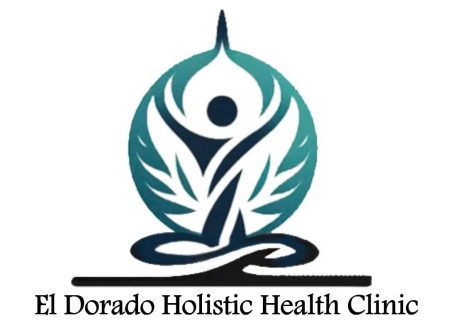Supplements for Preventative Health
Top Supplements for Preventative Health: Essentials for a Strong Foundation
Building a strong foundation for health doesn’t just happen overnight – it’s about giving your body the nutrients it needs to stay resilient over time. While a balanced diet is key, certain supplements can give you a boost, filling in the gaps and supporting overall well-being. Here’s a look at some of the top supplements for preventative health and how they can help you feel your best.
1. Vitamin D: The Sunshine Vitamin
- Why It’s Important: Vitamin D is essential for bone health, immune function, and mood regulation. Many people, especially those in colder climates or with limited sun exposure, don’t get enough.
- How to Take It: Look for vitamin D3, which is more easily absorbed. Adults typically need 600-800 IU per day, though some may benefit from higher doses. Check with your doctor for personalized advice.
2. Omega-3 Fatty Acids: Heart and Brain Support
- Why It’s Essential: Omega-3s, found in fish oil or algae-based supplements, support heart health, reduce inflammation, and promote cognitive function.
- How to Take It: Aim for a supplement with EPA and DHA, two active forms of omega-3s. Most people benefit from 250-500 mg per day. For those who don’t consume fish regularly, a supplement is especially beneficial.
3. Probiotics: Gut Health Guardians
- Why They Matter: A healthy gut is the foundation of overall health, impacting immunity, digestion, and even mood. Probiotics provide beneficial bacteria that help keep your microbiome balanced.
- How to Choose: Look for a high-quality probiotic with multiple strains, like Lactobacillus and Bifidobacterium. Taking it with food can help with absorption and reduce any initial digestive discomfort.
4. Magnesium: The Mighty Mineral
- Why It’s Beneficial: Magnesium supports muscle and nerve function, regulates blood pressure, and promotes relaxation. Many people are magnesium-deficient due to modern diets.
- How to Take It: Magnesium glycinate or citrate are well-absorbed forms. Dosages around 200-400 mg daily are common, but it’s best to start low and increase gradually, as higher doses can cause digestive upset.
5. Vitamin C: The Immune Booster
- Why It’s Important: Vitamin C is a powerful antioxidant that supports immune health, skin health, and wound healing.
- How to Take It: Many people benefit from 500 mg to 1000 mg daily, especially during cold and flu season. Whole food-based vitamin C supplements or buffered forms can be gentler on the stomach.
6. B-Complex Vitamins: Energy and Stress Support
- Why It’s Useful: B vitamins, including B12, B6, and folate, support energy levels, brain function, and mood regulation. They’re particularly beneficial for those with high-stress lifestyles or restrictive diets.
- How to Take It: Look for a high-quality B-complex that provides all eight B vitamins. Dosages vary by individual needs, but most B-complex supplements provide balanced amounts.
7. Zinc: Immunity and Skin Health
- Why It’s Essential: Zinc is crucial for immune support, wound healing, and skin health. It’s especially helpful for reducing the duration of colds and supporting overall immune resilience.
- How to Take It: Aim for 8-11 mg daily. During illness, higher doses of zinc lozenges can provide extra support, but avoid long-term high doses without medical supervision.
8. Curcumin: The Anti-Inflammatory Powerhouse
- Why It’s Powerful: Curcumin, the active compound in turmeric, is known for its anti-inflammatory and antioxidant properties. It can support joint health, brain health, and overall inflammation control.
- How to Take It: Look for a curcumin supplement with black pepper extract (piperine) to improve absorption. Dosages vary, but 500-1000 mg daily is common.
9. Coenzyme Q10 (CoQ10): Cellular Energy and Heart Health
- Why It’s Beneficial: CoQ10 supports cellular energy production and is especially important for heart health. Levels naturally decline with age, so it’s a good addition for older adults.
- How to Take It: Ubiquinol is a more absorbable form of CoQ10. Dosages of 100-200 mg daily are typical, particularly for those on statin medications, which can deplete CoQ10.
A Few Tips for Taking Supplements
- Start Slowly: If you’re new to supplements, start with one or two and add more as needed. This helps you monitor how each one affects you.
- Check for Quality: Look for reputable brands that test for purity and potency. Certified supplements ensure you’re getting what’s on the label.
- Pair with Food: Many vitamins and minerals absorb better with food, especially those that are fat-soluble (like vitamin D and CoQ10).
- Consult a Healthcare Provider: Before starting a new supplement routine, it’s always best to check with your doctor, especially if you’re on medication or have health concerns.
The Takeaway: Small Additions, Big Benefits
Supplements can be a great way to fill in nutritional gaps, boost immunity, and support overall health. By focusing on foundational supplements like vitamin D, probiotics, and omega-3s, you’re giving your body the tools it needs to stay strong and resilient. Remember, they’re just part of the puzzle – a balanced diet, regular exercise, and stress management are key for a long, healthy life! 🌿
© Copyright. All rights reserved.
We need your consent to load the translations
We use a third-party service to translate the website content that may collect data about your activity. Please review the details in the privacy policy and accept the service to view the translations.
